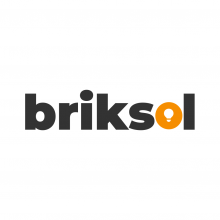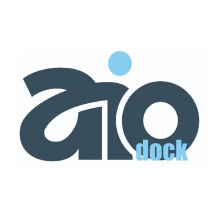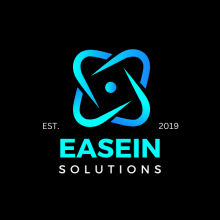Explore Top Help desk Companies in Pakistan
IT Business and Consulting Services "Driving Innovation in Business – Where Vision Meets Execution"
Smartfun Studios Pvt. Ltd (smartfunstudios.com) specialize in blockchain, AI/ML, web & mobile apps, and game development and marketing.
Services:
Your IT Challenges, Our Expert Solution
Services:
DIGITAL GROWTH MARKETING AGENCY - Surefire Business Success
Services:
Briksol is a software company offering solutions in Web Development, SEO and Social Media Marketing, enhancing digital presence for brands.
Innovating Your Digital Experience
Dealing in Web (Laravel, PHP, MEA | RN Stack), Mobile App Developers Also outsource services of managing the Projects. Also offer Staff Augmentation.
Data Engineering & Analytics Solutions Providing Company
Design, Develop and Deploy Modern Technologies and its Solutions. AioDock believes in Quality and customer satisfaction.
Empowering Innovation Simplifying Solutions
Services:
Hellooooooooooooooooooooooooooooooooooooooooooooooooooooooooooooooooo, awaz aa rahi hai??
NVMe Web Hosting | Reseller | Cloud VPS and Dedicated Server provider
Services:
Affordable Website Design Services in Pakistan
Services:
Trusted IT partner for DevOps, Microservices, Managed Services, Staff Augmentation, Digital Workspaces, Cloud Migration, Implementation and Training.
ePatronus offers BPO, Staff Augmentation, AI/ML, Web/Software & Mobile Development, ERP Solutions, e-Commerce/Marketplace Solutions and more.
Innovate, design, and transform with Vistech Solution - your gateway to a future defined by digital brilliance and architectural ingenuity.
Immentia is a team of highly skilled professionals dedicated to cultivating full-service digital solutions.
Services:
Our tailored solutions and unwavering commitment to client satisfaction set us apart as trusted partners in business optimization and growth.
Services:
Choosing Vorson means opting for a premier destination where luxury meets necessity. Our holistic approach ensures excellence in facility management.
Services:
The core business of Optimum Tech is to provide holistic IT solutions and services that empower businesses to thrive in the digital age.
SatComm offers reliable fiber and dedicated internet in Karachi, with fast speeds, responsive support, and scalable solutions for homes and businesses
Services:
We are honored to have the opportunity to introduce you to TFS Corporation - We are a full-service IT solutions, consulting, and Trading firm.
Filter Help desk Companies in Pakistan by Cities
Find the right tech company near you or from a specific city. Some of the best companies might be located in smaller cities.
Find more Help desk companies around the world
TechBehemoths is the world's most advanced and user-friendly platform to match IT Companies with real clients without hustle.
The ICT Industry in Pakistan: Data & Insights
Pakistan’s Information Technology (IT) sector has a promising future with its talented youth and is poised to become the largest export industry of the country, according to the Pakistani High Commissioner to the UK.
Based on this information, it is also important to mention that the average salary in the IT industry in Pakistan is estimated at around 712.52 USD/mo, making the country one of the most accessible and competitive in the region in terms of prices.
According to Statista, the IT Industry in Pakistan is predicted to reach $2.75 billion in 2025, with the biggest segment of it being IT Outsourcing, worth $970.62 million the same year.
Why Work With Pakistan-based IT Companies
Pakistan-based IT companies and web agencies are in the full development process and promoting their services mainly to foreign clients using the latest technologies. Even though Pakistan is probably the newest player in the IT sector in the region, it has revealed that it has huge capacities with several tech startups and new web agencies that continue to grow. In this way, there are more than 1500 IT companies in Pakistan with 10,000 professionals enrolling in the sector each year.
What to Be Aware of When Working With Pakistan-based IT Companies
The relatively low number of IT companies in Pakistan is motivated by two factors: First, as mentioned previously is that the web agencies based in Pakistan are new in the region and are in a full development and promotion process. The second reason is that professionals in the country are focused more on freelancing than on entering a corporate environment and developing a digital business system, based on a report from the NY Times.
Considering both indicators, it should be noted that the Pakistan-based companies don’t have rich experience in the market and thus, a developed business culture, which may be a challenge for potential foreign clients.
How Reliable Are IT Companies From Pakistan?
The young and inexperienced behavior of Pakistan-based IT companies and web agencies is compensated for by the high capacity and low prices on the market that they can provide. This makes Pakistan-based companies and web agencies, as well as freelancers to have a balanced reputation on the global market, making the selection process easier for potential clients.
How the Pakistani IT Industry Relates to the Neighboring Countries
Pakistan is trying to make its place in the global setup. Perhaps, this is the reason why the country’s freelancers offer rates 30% to 50% less than those offered in India. According to Statista, India’s IT market size is $28.85 billion, while Pakistan’s is just $2.75 billion. While India’s population is seven times higher, its investment in the startup ratio is also 30 times greater. The ratio of the size of the economy is 1:10, while the market size of startups is 1:100. This can be improved as Pakistan’s startup market can grow up to 5 times.
The Global Competitiveness Index and Ease of Doing Business Index of Pakistan show that the country has some giant strides to make. India has 6 big IT companies, and every company has at least a $10-billion revenue a year. Google, IBM, and Microsoft have their local office in India, promoting the country’s industry through research and development. On the other hand, Pakistan has not seen business tycoons venture into the IT industry. Pakistani businessmen love to invest in real estate and gold.
What is Help desk and what are its benefits for your projects?
For companies seeking efficient IT support, Help Desk services provide a central point of contact for resolving technology-related issues. These services are crucial for ensuring smooth operations within organizations, as they address technical problems and answer inquiries from users.
There are lots of IT companies that specialize in providing Help Desk services, employing teams of skilled technicians and support professionals who are well-versed in resolving a wide range of IT issues. The largest companies providing help desk services count ServiceNow, Zendesk, and Atlassian's Jira Service Management. But smaller and more affordable companies can be found on the current page
Reliability is a key factor for Help Desk service providers. These companies are typically equipped with the necessary resources, expertise, and infrastructure to provide timely and effective support. However, reliability also depends on factors such as the company's experience, the competency of their support staff, and the quality of their service level agreements (SLAs).
Help Desk service providers use various tools and technologies to streamline support operations, including ticketing systems for issue tracking, remote desktop software for troubleshooting, knowledge bases for self-help resources, and customer relationship management (CRM) software for managing user interactions. Additionally, they often employ chatbots and AI-driven automation to enhance response times and efficiency.
Help Desk services are closely related to various IT support and management services, including:
-
IT Service Management (ITSM): Comprehensive solutions for managing IT services and infrastructure.
-
Managed IT Services: Outsourced IT support and management for businesses.
-
On-Site Support: Physical presence for addressing complex technical issues.
-
Remote IT Support: Remote troubleshooting and issue resolution.
-
IT Consulting: Strategic guidance for technology decision-making.
Choosing the Best IT Companies Providing Help Desk Services: Selecting the right IT company for Help Desk services involves evaluating factors such as their experience, support capabilities, adherence to industry standards, and the scalability of their solutions. Look for providers that align with your organization's specific support needs and budget constraints. Additionally, consider their responsiveness and willingness to tailor services to your requirements.
Help Desk providers are essential for various projects, including:
-
Establishing IT Support: Setting up a Help Desk service for the first time within an organization.
-
Expanding Support: Scaling support operations to accommodate a growing user base.
-
Technical Issue Resolution: Addressing critical incidents and reducing downtime.
-
IT System Deployments: Providing support during technology rollouts and migrations.
-
User Training: Offering training and guidance on technology usage.
Companies across industries can benefit from Help Desk services, including:
-
Small and Medium-sized Enterprises (SMEs): Seeking cost-effective IT support without in-house IT teams.
-
Large Enterprises: Managing complex IT ecosystems and extensive user bases.
-
Service Providers: Offering technical support as part of their service packages.
-
Education Institutions: Supporting faculty, staff, and students with technology issues.
-
Healthcare Providers: Ensuring uninterrupted access to critical medical systems.
-
E-commerce Businesses: Maintaining online store functionality and resolving customer issues.
Other Relevant Information for Help Desk Service Seekers: The cost of Help Desk services can vary significantly depending on factors such as the level of support required, the complexity of the IT environment, and the number of users. Costs are typically based on a per-user or per-device subscription model. In the US, prices can range from $20 to $100 per user per month or more, with additional costs for on-site support or extended hours of coverage. Costs in the UK and Australia may follow similar ranges but can also vary due to market conditions and service providers' offerings. It's essential to discuss pricing and SLAs with Help Desk service providers to ensure that the chosen plan aligns with your organization's needs and budget.























